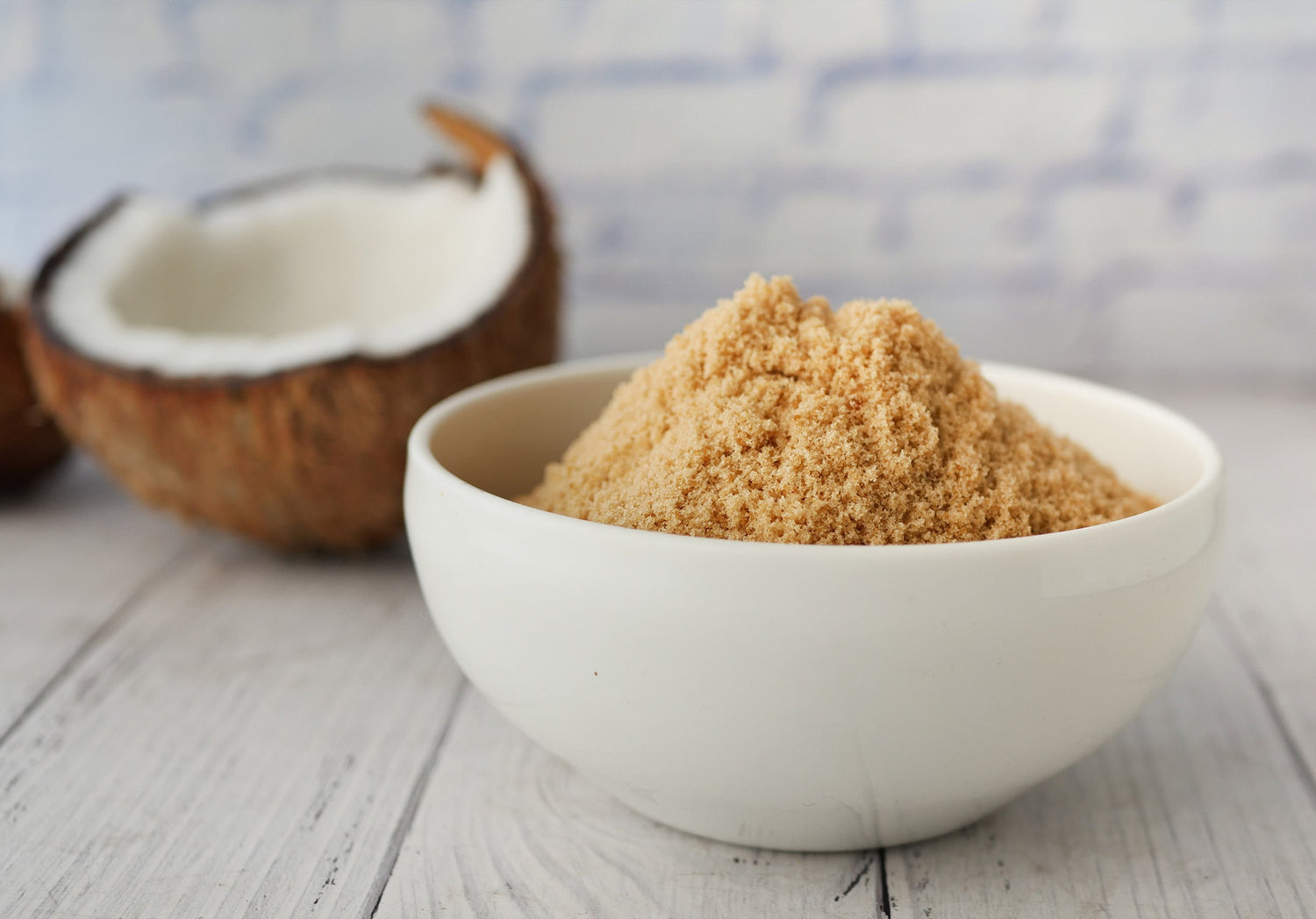Coconut sugar and jaggery
Sweet toddy, when collected carefully in sterile glass vessels, remains unfermented for a significant period. It can be processed by straining and boiling down to the crystallizing point, resulting in 12-15% jaggery with notable nutritional and medicinal value. The presence of reducing sugars and minerals enhances its nutritional profile, making it a health-friendly choice.
Coconut sap, which contains approximately 15% sugars along with significant nutrients, can be transformed into various value-added products. Coconut sugar and jaggery are obtained by evaporating the water from unfermented sap at 115°C. The resulting viscous liquid, with a high concentration (Brix 60 to 70), can be cooled to obtain coconut honey or syrup. Further heating thickens the sap, which is then molded into jaggery using coconut leaf molds or steel molds. Continuous stirring during heating prevents charring and transforms the viscous syrup into crystallized form. The sugar is carefully cooled with continuous stirring to ensure uniform particle size and high-quality product.
Coconut sugar, also known as coconut palm sugar, coco sugar, or coco sap sugar, stands out from cane sugar as it not only provides calories but also offers a range of nutrients. It boasts a high mineral content, surpassing that of brown sugar and refined cane sugar, and is rich in potassium, magnesium, zinc, and iron. Additionally, it contains essential amino acids necessary for protein synthesis and is packed with B complex vitamins such as B1, B2, B3, and B6. Compared to brown sugar derived from sugarcane molasses, coconut sugar contains twice the amount of iron, four times the magnesium, and over ten times the zinc.
Another delectable coconut product is coconut frozen delicacy, a vegan ice cream composed predominantly of tender coconut water, coconut milk, and tender coconut pulp. This premium product is not only highly nutritious but also appeals to health-conscious consumers seeking flavorful, plant-based alternatives.
Coconut vinegar
Coconut vinegar is produced by fermenting coconut toddy for more than 24 hours, followed by a period of acidification lasting 10-14 weeks. This traditional process results in a tangy and flavorful vinegar that is commonly used in the preparation of fish and meat dishes, adding a distinctive touch to culinary creations.

